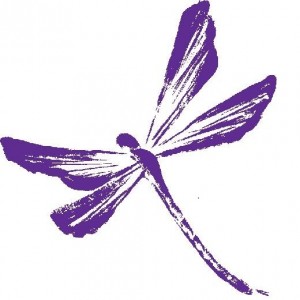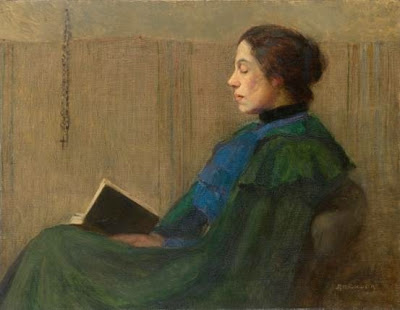Welcome to another year of reading Non-Fiction titles by Australian Women Writers.
Personally, I’ve had a slow start to the year when it comes to reading and reviewing AWW non-fiction titles…and it would seem that this applies to the wider community as well. So far we’ve only had 9 reviews from five reviewers.
Medical titles seem to be our main area of non-fiction interest at the moment with Wellmania: Misadventures in the Search for Wellness (Brigid Delaney), Anaesthesia:The Gift of Oblivion and the Mystery of Consciousness (Kate Cole-Adams and The Best Death: How to Die Well (Sarah Winch) featuring in our reviews.
Indigenous issues were discussed in A Rightful Place: A Road Map to Recognition (edited by Shireen Morris). Jennifer reflects,
We cannot go back, but we can go forward. Together.
As I read this collection of essays, my anger with successive governments increased. We’ve had so many opportunities to engage in meaningful discussion, so many opportunities to identify the issues we need to address, so many opportunities to move forward. Like so many others, I was moved by Paul Keating’s Redfern Address in 1992 and Kevin Rudd’s ‘Sorry’ speech in 2008. But what has been achieved since then?
This collection of essays is recommended reading. How can we continue to ignore this issue?
Another collection of essays to get excited about was Helen Garner’s True Stories: The Collected Short Stories. I’m sure that Jennifer’s review will not be the last word on this extraordinary book published to celebrate Garner’s 75th birthday.
Women’s issues were examined in Not Just Lucky (Jamila Rizvi) while sociology and cultural life were explored in Australian Gypsies: Their Secret History (Mandy Sayer) and Hello Gen Z: Engaging the Generation of Post-Millennials (Claire Madden).
An older title – Joe Cinque’s Consolation by Helen Garner also got another look in by reviewer Angharad @Tinted Edges. She found this difficult book hard to pin down,
The entire time I was reading this book, I kept misremembering the title as “Joe Cinque’s Desolation”. I was looking for the consolation, as I think Helen Garner was as well, and I honestly don’t think in the end either of us found it. I think this is a powerful, insightful and well-researched book (given the circumstances) but I don’t think that it contained any revelations larger than the fact that Australia’s mental health system needs some significant improvement and people need to take threats their friends make seriously.
There have been a number of local awards and shortlists announced in recent times. The 2018 shortlist from the Adelaide Festival Awards for Literature features these General Non-Fiction titles (book links will take you to the reviews by our members for each title):
- Quiet City: Walking in West Terrace Cemetery by Carol Lefevre (Wakefield Press)
- Position Doubtful by Kim Mahood (Scribe Publications)
The Australia Book Industry longlist for 2018 features an incredibly diverse range of Australian authors. The AWW Non-Fiction nominees include:
- Anaesthesia: The Gift of Oblivion and the Mystery of Consciousness by Kate Cole-Adams (Text Publishing)
- Being 14 by Madonna King (Hachette)
- First, We Make The Beast Beautiful by Sarah Wilson (Macmillan Australia)
- Not Just Lucky by Jamila Rizvi (Viking Australia)
It would be remiss of me to not mention the Indie Book Awards shortlists for 2018 (seeing as how I work in an Indie bookshop in Sydney and all)! The full 2018 shortlist can be found here, but the ones of interest to us today are from the Illustrated Non-Fiction Shortlist:
- Maggie’s Recipe For Life by Maggie Beer with Professor Ralph Martins (Simon & Schuster Australia)
- Cornersmith: Salads and Pickles by Alex Elliott-Howery & Sabine Spindler (Murdoch Books)
- Native: Art & Design with Australian Plants by Kate Herd & Jela Ivankovic-Waters (Thames & Hudson Australia)
As you can see there are plenty of interesting and fascinating non-fiction titles out there for us to sink our teeth into. Parenting, gardening, cooking, health, walking tours, true crime, generational change, politics and geography are just some of the topics highlighted this round-up.
What will you be reading this month?
About Bronwyn: I have been a book blogger at Brona’s Books since 2009 and a bookseller (specialising in children’s literature) in Sydney since 2008. Prior to this I was as an Early Childhood teacher for 18 years in country NSW.
I joined the AWW team in 2015 as the History, Memoir, Biography editor. In 2017 I became the General Non-Fiction editor.
 I taught myself to read when I was four by memorising my Dr Seuss books. I haven’t stopped reading since.
I taught myself to read when I was four by memorising my Dr Seuss books. I haven’t stopped reading since.
You can find me on Twitter @bronasbooks and Litsy @Brona.






I’m currently reading The CSIRO Low-Carb Diet by Grant Brinkworth & Pennie Taylor – very interesting and practical so far
Thanks for the roundup, Bron. I always enjoy reading what’s out there by way of contemporary nonfiction, even though I read mostly fiction. I’ve been delving into a few titles from our list of AWW fiction from the 1840s and 1850s and your post made me wonder what nonfiction was being written and published by AWWs mid to late last century. I’m sure there’d be gold to find for some avid researcher.
That’s a very good question Elizabeth. I have struggled to find anything very old at all.
Margaret Fulton cookbooks from the 70’s perhaps? A Margaret Wylie compiled the Golden Wattle Cookery Book in 1924.
Joan Lindsay wrote an autobiography, Time Without Clocks, in the 60’s & Stella Miles Franklin wrote 3 non-fiction titles – Joseph Furphy: The Legend of a Man and His Book (1944), Laughter, Not for a Cage (1956), Childhood at Brindabella (1963).
Ada Cambridge wrote 2 memoirs – Thirty Years in Australia (1903)
The Retrospect (1912).
Mary Durack was writing non-fiction during the 40’s, 50’s & 60’s.
Rosa Campbell Praed wrote My Australian Girlhood in 1902. Other autobiographies were written by Katharine Susannah Prichard, Mary Gaunt (who also wrote a few travel books), Henry Handel Richardson, Catherine Helen Spence, Patsy Adam-Smith (who was rather a prolific non-fiction writer – her main area of interest being trains as well as history and folklore in general) and Marjorie Barnard (plus several Aust history books as well).
I’m sure there’s more….*throws down gauntlet!
Have been meaning to reread Joe Cinque since watching the SBS movie version. I first read it decades ago, but it was on the back of The First Stone which I found gripping (partly because it was relevant – I was at Melbourne Uni and had many friends in colleges) and I recall Joe Cinque didn’t quite engage me as First Stone had.
You and me both!
I haven’t read The First Stone yet either.
I’m glad it’s not just me who found it hard to engage with!
Thanks for this round-up Brona. After seeming to read a lot of non-fiction last year (admittedly more often the HMB category), my reading this year has returned more to fiction, which I did want to happen. I’ve been intrigued by Anaesthesia but I don’t imagine I’ll get to it.
As for mid nineteenth century non-fiction, what I know most are explorer journals, and the letters and diaries particularly of women. Some of them are quoted by Clare Wright in The forgotten rebels of Eureka, and some can be found on Project Gutenberg Australia.